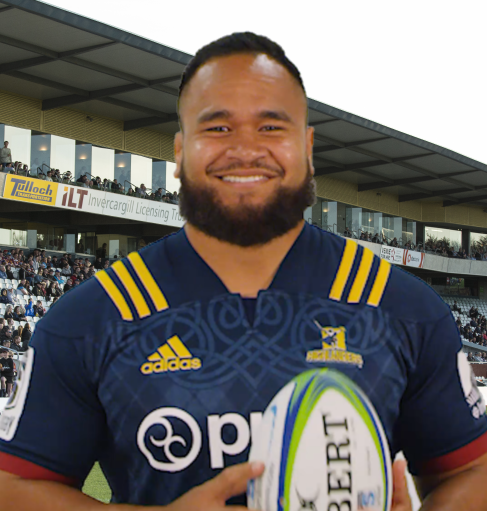Olympic and World Cup double exciting for Saili
The prospect of potentially playing in a Rugby World Cup and an Olympics in the same year is one benefit which could come out of the pandemic for Alena Saili.
As a member of the Black Ferns sevens team, and the 15-aside Black Ferns when World Sevens commitments allow, Saili is Southland rugby’s most high-profile export.
Now based at the Ferns’ Mt Mauganui home, Saili was relishing the chance to finally get back to playing footy after Covid-19 brought a premature end to the world circuit and preparations for the Tokyo Olympics.
‘Footy’ will look a little different for Saili, who was recruited into rugby’s national high performance programme straight out of Southland Girls’ High School before stepping foot in a club, or even provincial, changing shed.
Now Saili is ‘fizzing’ about the prospect of playing some club rugby for the first time, and hopefully getting a chance to make her debut in the Farah Palmer Cup for her adopted province Bay of Plenty.
While many of her sevens sisters will head back to their regions to play FPC, Saili doesn’t have that option with Southland, but is excited nonetheless.
“I’m pretty excited to see the skill level because I know it’s going to be right up there, especially with the Black Ferns coming back in,” Saili said during a break from training in the Mike Piper Training Centre at ILT Stadium Southland.
With four wins from five tournaments during the 2020 season, the Black Ferns continue to set the standard for women’s sevens and would have been a gold medal favourite in Tokyo.
There’s also the tantalising prospect of the ninth Rugby World Cup for women being staged in Auckland and Whangarei next July.
“There’s still a lot of talk around that and whether we can go to both or if we would have to choose one. I’d love to do both, but we’ll just see how that goes<” Saili said.
“I guess everything happens for a reason and it just gives us more time to regroup as a team and work on more stuff and get even better than we were last year.”
Keeping motivated during lockdown had been challenging for Saili.
She had her sister for company and was in regular contact with a group of players who offered accountability and support.
There was Tik Tok to help break up the boredom and a realisation that Saili has been able to overcome challenges in the past.
The biggest of which was undoubtedly being initially left out of the Black Ferns squad for the 2018 Commonwealth Games on the Gold Coast.
“For me, straight out of school, I made every tour right up until that point. I missed a tour and then the Comm Games and that was the biggest wakeup call I could have had for my professional career,” she said.
“To be honest I cried for a couple of days. I thought I was in such a good space, but obviously it wasn’t good enough. I knew I hadn’t done everything I could have. If I knew I’d done everything I could have I would have been ok, but that’s what made it even worse.”
Saili would later be added to the gold medal-winning squad when Ruby Tui was forced to withdraw after contracting the mumps.
“For me, it was such a suck thing for Ruby to go through and for a start I was wondering whether I deserved to be there. That switched and I was like ‘I’ve got to take this full stride and just go with it.” It was definitely a roller coaster.”
Saili isn’t taking anything for granted now. Nutrition, recovery and time management – all lessons she first started learning as a member of Academy Southland – are important to her.
Despite having played 76 games for the Black Ferns, she looks to the likes of Tui, Sarah Hirini, Portia Woodman and Kelly Brazier as the gold standard in professionalism, both as players and people.
And to the next generation of players who would love a chance to tour places like Dubai, Paris and Sydney playing code for a living.
“There’s so many up-and-coming players, so many young girls in our squad now. I used to be the baby of the team and it’s unreal to see the players coming through. (Sevens) is definitely growing and it’s exciting to be part of the group helping to drive the rise of women’s rugby.”








